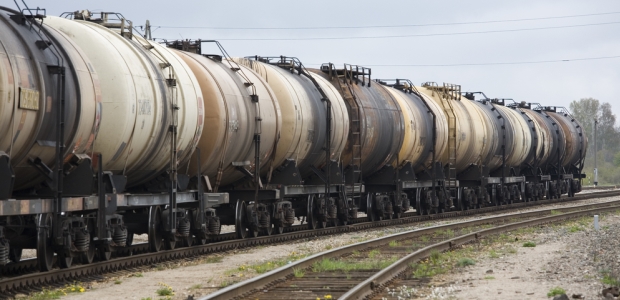
PHMSA Issues Alert About Bakken Oil's Flammability
The alert issued Jan. 2 follows the derailment three days earlier near Casselton, N.D., of a train carrying the oil.
The federal Pipeline and Hazardous Materials Safety Administration has issued a new safety alert to notify the public, emergency responders, and shippers and carriers that several 2013 fiery derailments indicate the crude oil being transported from the Bakken region may be more flammable than traditional heavy crude oil. The most recent event occurred on Dec. 30, 2013, near Casselton, N.D., and involved 18 cars in a BNSF train transporting the oil.
Other derailments have occurred recently in Alabama and Lac-Megantic, Quebec. PHMSA stated it is "reinforcing the requirement to properly test, characterize, classify, and where appropriate sufficiently degasify hazardous materials prior to and during transportation." This alert is a follow-up to the PHMSA and Federal Railroad Administration joint safety advisory published Nov. 20, 2013, and these remind offerors that they must ensure all potential hazards of the materials to be shipped are properly characterized.
NTSB Board Member Robert Sumwalt delivered the agency's final on-scene briefing about the Casselton derailment, which is available via a link on the agency's website. He said data recorders had not yet been recovered from that train's front locomotives and may not be recoverable, but a recorder on the rear locomotive indicated the train was moving at 42 mph at point of derailment. Signals nearest to that point were checked and found to be operating properly, said Sumwalt, who said the oil aboard the train is classified as a UN 1267 3 flammable liquid in packing group I, meaning it has the lowest flash point.
"Proper characterization will identify properties that could affect the integrity of the packaging or present additional hazards, such as corrosivity, sulfur content, and dissolved gas content. These characteristics may also affect classification," PHMSA said in its alert message. "PHMSA stresses to offerors the importance of appropriate classification and packing group (PG) assignment of crude oil shipments, whether the shipment is in a cargo tank, rail tank car or other mode of transportation. Emergency responders should remember that light sweet crude oil, such as that coming from the Bakken region, is typically assigned a packing group I or II. The PGs mean that the material's flashpoint is below 73 degrees Fahrenheit and, for packing group I materials, the boiling point is below 95 degrees Fahrenheit. This means the materials pose significant fire risk if released from the package in an accident."
The alert is part of ongoing investigative efforts by PHMSA and FRA named "Operation Classification," a compliance initiative that involves unannounced inspections and testing of crude oil samples to verify that offerors are indeed properly classifying and describing their hazardous materials. PHMSA said it will soon have final test results for the gas content, corrosivity, toxicity, and flammability of the Bakken crude.